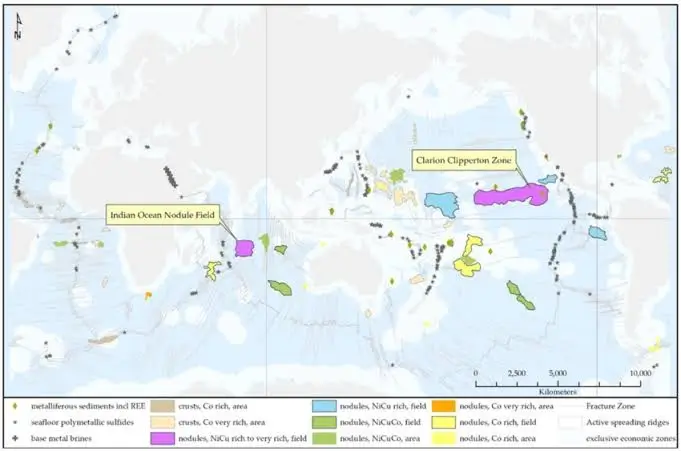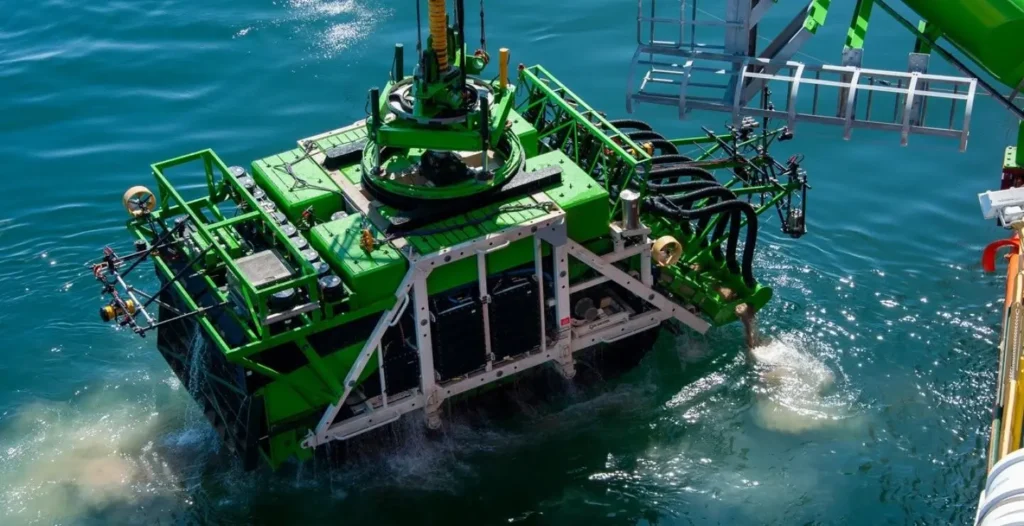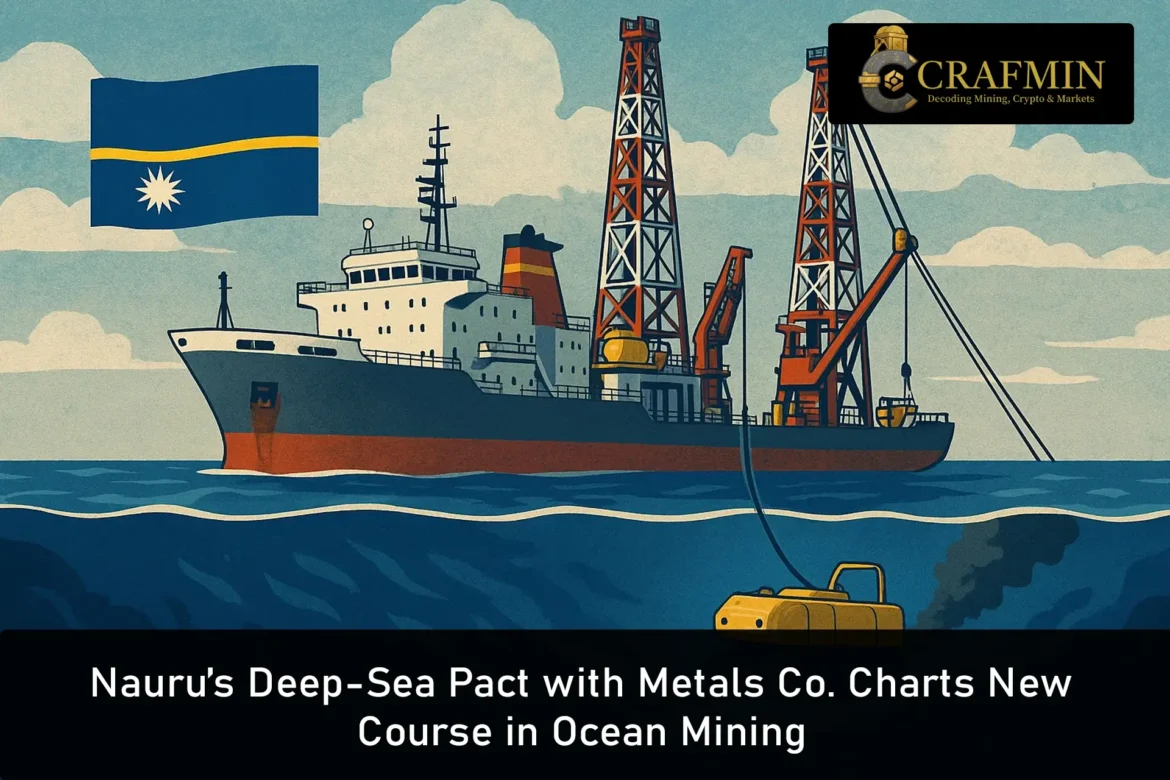Nauru—one of the globe’s smallest republics—has just inked a remarkable deal with The Metals Company to explore polymetallic nodules across a massive swathe of the Clarion‑Clipperton Zone (CCZ). Estimated to house trillions in critical minerals (like cobalt, manganese, nickel, and copper), the CCZ could become pivotal for EV battery supply chains. Nauru’s sponsorship as an ISA-approved nation unlocks deep-sea mineral rights and positions it at the heart of an emerging high-stakes resource market.
Seabed Gold—or Environmental Gamble?
Polymetallic nodules litter the seabed, enriched with battery-needed elements. The NORI-D exploration license, backed by Nauru Ocean Resources Inc. (NORI), covers approximately 74,830 km² of deep ocean floor. Nodes undergo vacuum-style harvesting by submarine vehicles—raising concerns over potential impacts on marine life, fisheries, and vital carbon cycles.

Map of the Clarion‑Clipperton Zone bed where seabed nodules await exploration.
Source: Research Gate
Deal Details: Funding, Environment, Shared Benefits
According to official outlines:
- Royalty structure ensures revenue flow to Nauru’s national budget.
- Capacity-building invests in training Nauruan scientists and crew.
- Environmental stewardship includes mandated baseline surveys and ongoing monitoring, overseen under ISA standards.
- Operational timeline: NORI aims to begin pilot collection by 2026, pending environmental countersigning.
Why It Matters: A Pivot in Critical Minerals Strategy
With terrestrial supply chains under geopolitical strain, the CCZ represents a strategic pivot. Estimates indicate over 21 billion tonnes of nodules—equating to millions of tonnes of battery-grade materials. As countries race to secure green energy supply chains, ocean mining offers a complementary path to diversify sources, especially for EV producers in Europe, Japan, Australia, and North America.
Regional and Global Ramifications
Pacific Island Impact
Nauru’s move has raised eyebrows among regional neighbours—some welcoming the funding, others wary of seabed disruption. The conversation highlights tensions between resource sovereignty and marine conservation.
Investment & Regulation
Pending commercial approvals, mining could trigger capital inflows into Nauru. However, the world will closely monitor environmental studies, stakeholder transparency, and ISA’s regulatory integrity.
Australia’s Strategic Interest
As a key EV battery hub and critical minerals partner, Canberra will be eyeing both investment collaboration and environmental leadership. Australian firms with mining, marine science, or battery tech competence may find pathways into the deep-sea value chain.
Also Read: Yanmar CEO Appointment: Ryu Kudo Ushers in a Smarter, Greener Equipment Era
Nurturing a Sustainable Ocean Mining Future
The Metals Company claims seabed extraction may have lower carbon intensity compared to terrestrial mining, given the absence of overburden and land-based infrastructure. Still, marine biologists argue that unknown deep-sea ecosystems must be protected, advocating a slow, precaution-first approach until pilot programs prove environmental safety.

Prototype nodule collector during trial deployment at deep-ocean simulation lab.
Source: The Metals Company
Metrics at a Glance
| Metric | Detail |
| Target seabed area | ~74,830 km² in the CCZ |
| Estimated nodule volume | 21+ billion tonnes |
| Key metals (per tonne of nodules) | Co, Mn, Ni, Cu – all crucial for EV, storage |
| Pilot collection timeline | 2026–2027 |
| Environmental framework | Pending ISA approval and continuous oversight |
Final Word: Deep Blue, Rich Potential — But Caveats Remain
Nauru’s partnership with The Metals Company in exploiting deep-sea nodules represents a landmark: small-island-state sovereignty, ocean-age mining, and green-tech ambition converging in one bold project.
While proponents highlight new supply lines for critical minerals and national development, there are stark reminders: deep oceans remain fragile, underlying science incomplete, and environmental contingency essential.
If Nauru navigates this path responsibly—with transparency, community consultation, and robust safeguards—it could pioneer an entirely new front in ocean-based resource economics. But if corners are cut, deep-sea mining could become a cautionary tale in rushed extractive policymaking.

